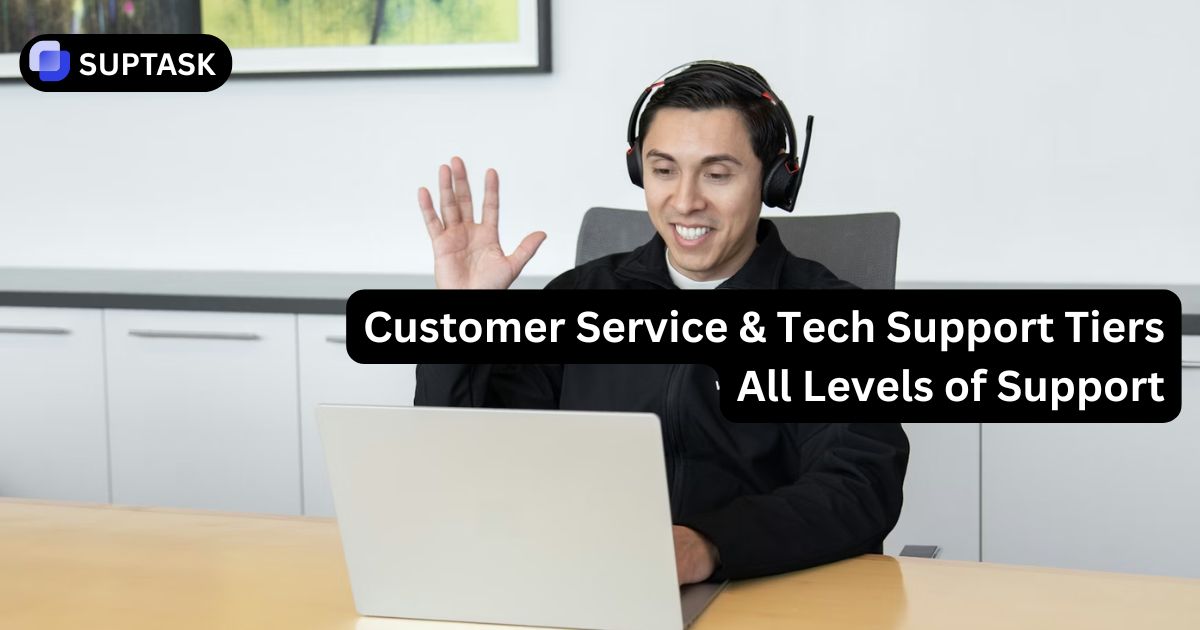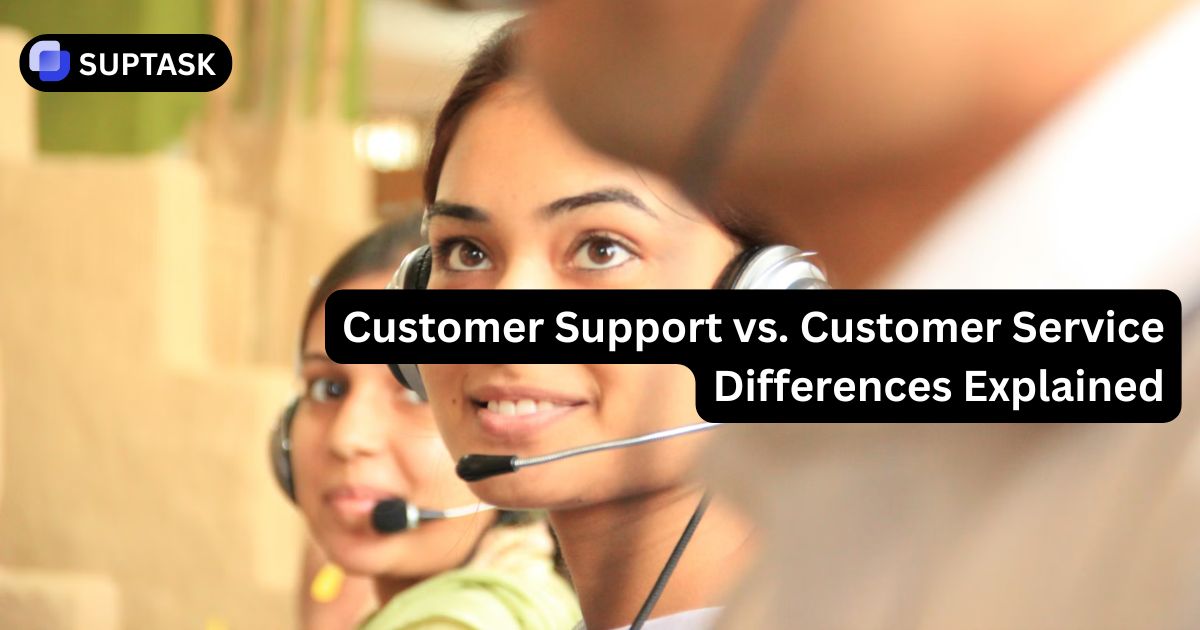When picking a help desk system, it’s vital to identify help desk software requirements document to ensure efficiency and satisfaction among users. Organizations must set forth a complete list of needs for their help desk solutions, covering ticketing system features like ticket processing, automation capabilities, and data analysis functionalities.
This way, it becomes easier for the selected system to fulfill the organization's distinct requirements. Be it regarding IT support or general customer service assistance features, a careful approach helps in enhancing effectiveness and quality assurance.
Key Takeaways
Before we dive into the details of IT help desk requirements, here's a quick overview of what you'll learn:
- The importance of an intuitive user interface for efficient support operations
- Essential ticket management features for streamlined issue resolution
- The power of multi-channel support in today's digital landscape
- How knowledge base integration can empower both customers and agents
- The role of automation in improving support efficiency and consistency
Key features to look for in help desk software include:
- Robust ticket management system
- Multi-channel support capabilities
- Customizable reporting and analytics tools
- Collaboration features for team efficiency
- Self-service options for customer empowerment
Ready to transform your customer support? Let's explore these essential help desk software requirements in detail!
21 Help Desk Software Requirements to Consider

Selecting the exemplary service desk software for your customer support team is crucial. However, it can be overwhelming to navigate through the multitude of options available, considering all the features and requirements that need to be taken into account.
In this section, we will explore the essential components and necessities of a help desk ticketing software that can empower your support team to provide exceptional customer service.
1. Intuitive User Interface
Why is a user-friendly interface so crucial? An intuitive user interface is the foundation of efficient customer support. It's like having a well-organized workspace – everything is where you need it, when you need it.
Key benefits of an intuitive interface include:
- Reduced learning curve for new agents
- Increased productivity and faster ticket resolution
- Improved agent satisfaction and reduced burnout
When evaluating help desk software, look for clean layouts, customizable dashboards, and easy navigation between different features.
This is why we built our help desk platform on top of Slack, to keep the user interface as easy and simple as possible for the entire organization. Try our Slack ticketing system.
2. Robust Ticket Management
Effective ticket management is the backbone of any help desk system. A well-designed customer support ticketing system ensures smooth ticket processing, categorization, and resolution, allowing support teams to work efficiently. But what makes a ticket management system truly robust?
Here's the more important requirements for your ticketing system:
- Categorization and prioritization of tickets
- Automated ticket routing and assignment
- Status tracking and resolution time monitoring
- Ability to merge related tickets for streamlined handling
- Custom tags
- Sorting and filtering
- Trigger notifications when tickets are overdue
These capabilities ensure that your support team can efficiently manage and resolve customer issues within desired timeframes.
3. Collaboration Tools
How do collaboration features enhance team efficiency? Effective teamwork is crucial for resolving complex issues and providing consistent support across your organization.
Essential collaboration tools include:
- Internal notes and comments on tickets
- Ticket sharing and transfer between agents or teams
- Team chat functionality for quick communication
- Integration with popular collaboration platforms like Gmail or Zendesk.
These features enable your support agents to work together seamlessly, share knowledge, and provide high-quality support.
4. Integration Capabilities
Why are integration capabilities important for your help desk software? Seamless integrations with other tools in your tech stack create a unified workflow and provide a holistic view of your customer interactions.
Look for integrations with:
- CRM systems for a complete customer view
- Project management tools for cross-functional collaboration
- Communication platforms for streamlined team interactions
- Analytics and reporting software for comprehensive insights (Suptask offers this directly within the app)
- Email ticketing integration
These integrations help create a cohesive support ecosystem that enhances overall efficiency.
5. Call Center Management
To ensure a successful help desk system, effective management of call centers is crucial since phone support is the second most popular customer communication channel. Here are some tools that can aid in promoting collaboration and delivering exceptional customer service:
- Call recordings
- Transcriptions
- Call conferencing
- Routing
- Manual transfers
6. Email Management
Email continues to be the most commonly used means of customer support communication, highlighting the crucial role of email management in help desk software.
To provide efficient and timely email support to your customers, you can take advantage of customizable email templates and signatures, as well as features like email scheduling and forwarding. These tools can greatly streamline your communication process.
Suptask offers seamless email help desk integration with both Gmail and Outlook.
7. Live Chat
By integrating live chat into your help desk system, you provide customers with the chance to obtain real-time assistance and receive prompt responses to their queries, reducing waiting periods.
By integrating live chat tools into your help desk, you can significantly improve efficiency and provide a more personalized support experience to your customers. Whether utilizing AI-driven or human-powered chat, these tools offer valuable benefits for enhancing customer satisfaction and streamlining your support system.
8. Platform Capabilities
When choosing help desk software, it's important to consider the various platform capabilities that can meet the diverse needs of your organization. Here are some examples of key platform capabilities to look for:
- Native apps for iOS and Android
- Customizable branding
- Multi-brand support
- Custom knowledge bases
These features not only enhance the customer experience but also enable your help desk software to conform to the specific needs of your organization easily.
With Suptask, it's as simple to download the Slack app, which is available for both iOS, Android and Desktop.
9. Reporting and Analytics
Why are comprehensive reporting and analytics tools essential? Data-driven insights allow you to measure your team's performance, identify areas for improvement, and make informed decisions to enhance your support operations.
Key reporting and analytics features to look for:
- Customizable dashboards for at-a-glance performance metrics
- Real-time monitoring of key support KPIs
- Customer satisfaction surveys and trend analysis
- Forecasting tools for resource planning
Having built-in reporting and analytics tools in your help desk operations is incredibly valuable. These tools allow you to track performance response times and identify areas where improvement is needed. By analyzing data and monitoring trends, you can make informed decisions and consistently enhance your customer service.
In addition to the basic features and requirements, there are several advanced capabilities that can greatly improve your help desk efficiency and enhance the overall customer experience.
In this section, we will discuss the unique features of your help desk software that set it apart from competitors. These include AI-powered assistance, a comprehensive knowledge base and self-service options, and multi-lingual support.
10. AI-Powered Assistance
How can AI enhance your support operations? Artificial intelligence can significantly improve response times, provide more personalized experiences, and assist agents in resolving complex issues.
Look for AI-powered features such as:
- Chatbots for initial customer interactions and triage
- Intelligent ticket routing based on content and urgency
- Predictive analytics for proactive issue resolution
- Sentiment analysis for gauging customer satisfaction
These AI capabilities can help your team work smarter and more efficiently.
11. Knowledge Base Integration
Why is a knowledge base crucial for both customers and support agents? A comprehensive knowledge base serves as a centralized repository of information, empowering customers to find answers independently and helping agents quickly access relevant information.
Key benefits of knowledge base integration:
- Reduced ticket volume through customer self-service
- Faster issue resolution by agents
- Consistent and accurate information across all support channels
Ensure your chosen help desk software includes a built-in knowledge base or offers seamless integration with existing knowledge management systems.
By implementing a well-organized help desk knowledge base that provides easily accessible information, customers gain the power to find answers to their questions and resolve issues on their own. This ultimately enhances the overall customer experience.
12. Self-Service Portal
How does a self-service portal benefit both customers and support teams? By empowering customers to find answers independently, you can reduce ticket volume and free up your agents to focus on more complex issues.
Key components of an effective self-service portal:
- Searchable knowledge base with FAQs and troubleshooting guides
- Community forums for peer-to-peer support
- Ticket submission and tracking capabilities
- Suggested articles based on user queries
A well-designed self-service portal can significantly improve customer satisfaction while reducing support costs.
13. Multi-Lingual Support
In today's interconnected world, your help desk software must accommodate multiple languages in order to serve a diverse customer base and improve user experience. While implementing and maintaining multi-lingual support may pose challenges, the advantages of offering assistance in various languages outweigh the difficulties involved.
Offering multi-lingual support has a significant advantage in improving customer communication and expanding global market reach.
14. Security and Compliance
Why are security and compliance features critical in help desk software? Protecting sensitive customer information is paramount in maintaining trust and meeting regulatory requirements.
Essential security features include:
- Two-factor authentication for user accounts
- Role-based access controls to limit data exposure
- End-to-end encryption for data in transit and at rest
- Compliance with industry standards like GDPR and HIPAA
- Regular security updates and maintenance
These measures safeguard your customers' data and protect your business from potential security breaches.
Data encryption plays a crucial role in ensuring data privacy. It serves as a protective measure against unauthorized access.
GDPR Compliance and Regular Updates
To protect customer data, it is essential for help desk software to be GDPR compliant and regularly receive security updates. GDPR compliance refers to following the requirements and regulations outlined by the General Data Protection Regulation. Regular updates are necessary to maintain compliance with any changes in regulations, operations, feedback, and best practices. This ensures ongoing protection of customer data.
To maintain customer confidence and ensure the security of your help desk software, it is important to stay updated with security patches and comply with GDPR regulations.
15. Data Encryption and Two-Factor Authentication
Ensuring customer trust requires secure data storage and access methods. Data encryption plays a crucial role in maintaining confidentiality by converting data from plaintext to ciphertext. Additionally, implementing two-factor authentication adds an extra layer of security by requiring users to provide two forms of identification to gain access to a system or account.
By implementing these security measures, customer data is safeguarded and access is strictly limited to authorized users.
16. GDPR Compliance and Regular Updates
To protect customer data, it is essential for help desk software to be GDPR compliant and regularly receive security updates. GDPR compliance refers to following the requirements and regulations outlined by the General Data Protection Regulation. Regular updates are necessary to maintain compliance with any changes in regulations, operations, feedback, and best practices. This ensures ongoing protection of customer data.
To maintain customer confidence and ensure the security of your help desk software, it is important to stay updated with security patches and comply with GDPR regulations.
17. Customizable Branding and Templates
Why are customization options important for your help desk software? Every business has unique requirements, and the ability to tailor your help desk solution ensures it aligns perfectly with your specific needs and brand identity.
A help desk or service desk software that offers customizable branding and templates can greatly enhance the user experience and improve workflow efficiency. By allowing users to personalize the look and feel of their interface, it enables a consistent and seamless experience while streamlining workflows for better productivity.
Look for customization features such as:
- Custom fields and ticket forms
- Branded customer-facing portals
- Personalized email templates and notifications
- Customizable workflows and automation rules
These options allow you to create a help desk experience that feels tailored to your business and customers.
Customizable branding and templates offer the flexibility to incorporate logos, colors, fonts, and other design elements. They also allow for the creation of custom templates for tickets, emails, and other tasks related to help desk management.
18. Scalability
How does scalability ensure long-term success for your help desk solution? As your business grows, your support needs will evolve. Choosing scalable software ensures that your help desk can adapt to increasing demands without compromising performance.
Consider scalability in terms of:
- Handling increasing ticket volumes
- Supporting growing support teams
- Accommodating additional communication channels
- Managing an expanding customer base
- Automated scaling
- Load balancing
- Resource optimization
Scalable help desk software grows with your business, providing consistent support quality as you expand.
19. Automation and Workflow Management
How can automation improve your support efficiency? By automating routine tasks and streamlining workflows, you can free up your agents to focus on more complex issues and provide personalized support.
Look for automation features such as:
- Automatic ticket routing based on predefined rules
- Canned responses for common queries
- Escalation rules based on SLAs
- Automated follow-ups and reminders
These capabilities help ensure consistent service quality and prevent issues from falling through the cracks.
20. Mobile Support
In today's mobile-first world, why is mobile support crucial? Mobile capabilities ensure that your support team can provide assistance anytime, anywhere, meeting the expectations of modern customers.
Essential mobile support features include:
- Native mobile apps for iOS and Android devices
- Responsive design for mobile browsers
- Push notifications for urgent tickets or updates
- Offline access to essential information
These features enable your team to provide timely and efficient support, even when on the go.
With Suptask being on Slack, using our tool on mobile is easier than ever.
21. Flexible Deployment Options
Why are flexible deployment options important? Different organizations have varying hosting preferences and security requirements. Offering multiple deployment options ensures that you can choose the best fit for your IT infrastructure.
Consider help desk software that offers:
- Cloud-based solutions for easy scalability and maintenance
- On-premise installations for maximum control and security
- Hybrid deployment models for a balance of flexibility and control
Flexible deployment options allow you to select the approach that best aligns with your organization's needs and resources.
Conclusion
Remember, the most successful help desk is one that aligns with your organization's unique goals and processes. Take the time to evaluate your options carefully, request demos or trials, and involve key stakeholders in the decision-making process.
With the right help desk software in place, you'll be well-equipped to deliver outstanding customer experiences, improve team efficiency, and drive long-term business success. Are you ready to transform your customer support operations?
FAQs
What are the requirements in a ticketing system?
A ticketing system should include ticket creation, categorization, prioritization, assignment, tracking, and resolution features. It should also offer automation, reporting, and integration capabilities to streamline support processes and improve efficiency.
What is service desk requirement?
Service desk requirements include multi-channel support, knowledge base integration, self-service options, and robust reporting tools. The system should also offer customization, scalability, and security features to meet specific organizational needs and growth.
What software is used for help desk?
Suptask is a popular option to use as a help desk as it function directly on Slack, making it easier for all teams to get familiar with. We have many different pricing plans, including a free option. The choice depends on factors like business size, industry, budget, and specific feature requirements.
What are the components of a successful help desk?
Key components of a successful help desk include an intuitive user interface, efficient ticket management, multi-channel support, knowledge base integration, automation tools, and comprehensive reporting capabilities. Collaboration features and customer self-service options are also crucial.
How does AI improve help desk operations?
AI enhances help desk operations by automating routine tasks, providing intelligent ticket routing, offering predictive analytics for issue resolution, and enabling chatbots for initial customer interactions. This improves response times and allows agents to focus on complex issues.






%20Dashboard%20Examples.jpg)






